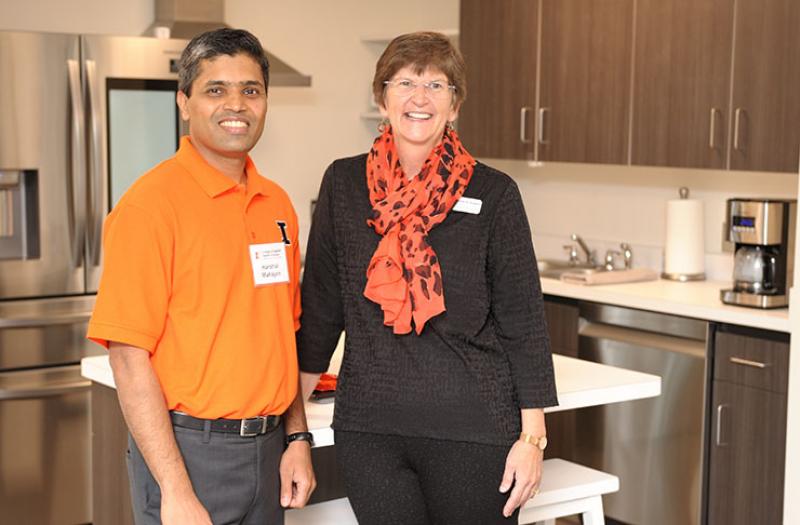
KCH researcher plans voice-assistant study at the McKechnie Family LIFE Home
The newly dedicated McKechnie Family LIFE Home is getting ready to play host to several research opportunities for graduate and undergraduate students in 2022.
As with most of the research agenda for the LIFE Home, the focus is to support healthy aging in midlife and older adulthood. KCH Assistant Professor Shannon Mejia is spearheading some of the research opportunities, including one that involves a voice assistant that guides participants through a study.
“We’re testing ideas that people, in the future, are using these types of devices to provide task assistance,” Mejia said.
Mejia said she and a collaborator—Jesse Chin, an assistant professor in the School of Information Sciences—are studying the outcome of enrichment seeking, which she describes as “the process of this willingness to go out and challenge yourself” as opposed to the idea of learning to dependence.
“Your entire room is connected and automated, or your kitchen is automated … Why cook for yourself when your voice assistant and kind of run the show for you?” Mejia said.
But Mejia said the objective is to provide conversations with a voice assistant that is “supporting the motivation to be independent.
“So, even though you could ask (the voice assistant) to turn on a light for you from the nature of your interaction with her you'd almost be compelled to try to do it yourself.”
Starting in February, some 70 participants will be going through the LIFE Home five days a week, Mejia said, led by a voice assistant, taking part in a series of games designed to cognitive well-being, on a tablet. The voice assistant will guide participants through the games and gauge their feelings after each game.
The study participants will spend about two hours in the LIFE Home dining/living room area and the home office. The LIFE home mimics a natural environment and the home illusion, , Mejia said, allows us to accurately measure participants’ cognitive and emotional responses during the study.
The hope, Mejia said, is that they conduct science that can optimize voice assistant technology so that it can encourage more exploration over exploitation and build independence.
“Then, even as people are bringing technology into their home, they can do it that could, in a way, increase independence,” she said.
